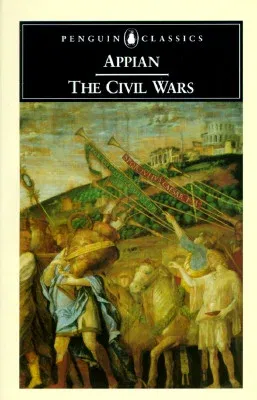Appian
(Author)The Civil Wars (Revised)Paperback - Revised, 1 December 1996

Qty
1
Turbo
Ships in 2 - 3 days
In Stock
Free Delivery
Cash on Delivery
15 Days
Free Returns
Secure Checkout

Reading Age
Ages: 18
Grade Levels
13
Part of Series
Penguin Classics
Print Length
480 pages
Language
English
Publisher
Penguin Group
Date Published
1 Dec 1996
ISBN-10
0140445099
ISBN-13
9780140445091
Description
Product Details
Audience:
Ages: 18
Author:
Book Edition:
Revised
Book Format:
Paperback
Country of Origin:
GB
Date Published:
1 December 1996
Dimensions:
19.56 x
12.85 x
2.16 cm
Educational Level:
Grade Levels: 13
ISBN-10:
0140445099
ISBN-13:
9780140445091
Language:
English
Location:
London, England
Pages:
480
Publisher:
Series:
Weight:
367.41 gm